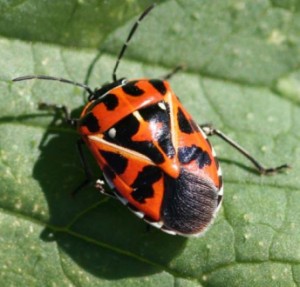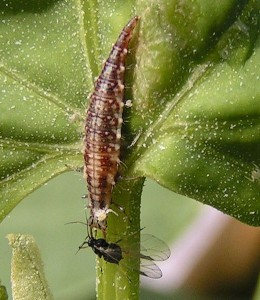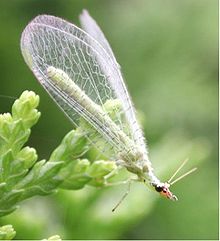Mild winters are like junk food. Sure, it’s good at the time, but the end consequences are dire. Winters lacking the usual bite allow nefarious bugs of all sorts to overwinter easily, creating mass hysteria in gardens once late spring and summer are in full stride. Nothing is more discouraging than walking out to discover a prized brussel sprout plant decimated in a day by a harlequin bug, or the prized cabbage for twenty hungry mouths crumbled by an invading aphid army.

Where is the hero in such dire times? Who owns the valor to rescue the gardens from the hostile takeover of gluttonous insects?
There is a ragtag group of insects dedicated to the eating of plant pests everywhere. These group of saviours are known as the beneficial insects, and many of their takeover tactics are something straight out of a Ray Bradbury novel.
Fifth Season will investigate these heroes of the insect world one by one. We start with the Lacewing.
Lacewings
Lacewing’s main diet consists of sugary substances like pollen, nectar, and honeydew. They can supplement this diet with mites and apids, which secrete a honeydew substance that ants go crazy over. However, it is the lacewing’s larvae that strikes fear in the black hearts of all aphids. A mature female lacewing can deposit up to 200 eggs, usually near a large cluster of aphids. Once this larvae hatches, a feeding frenzy commences. Lacewing larvae is also known as aphid lions, and these newly hatched youngsters can feed on up to 200 aphids a day.

The aphid lion is so ravenous that the its digestive secretion injected into each aphid can dissolve the bug’s organs in less than 90 seconds.
Biological Control
Lacewings, despite their exotic look and purpose, are actually easy to attract and/or purchase. The best, cheapest, and prettiest way to acquire lacewings is by planting certain flowers that attracts the beneficials in droves. The best attractants include cosmos, sunflowers, dandelions, and dill.

As winter approaches, allow some of the dying flowers to remain to give protection to overwintering lacewing cocoons. Seeds for these flowers can be purchased through companies like Asheville’s Sow True Seed or Virginia’s Southern Exposure Seed Exchange.
If you’re impatient and need the instant fix, you can purchase lacewing larvae through reputable beneficial bug companies like Nature’s Control.


Leave a Reply